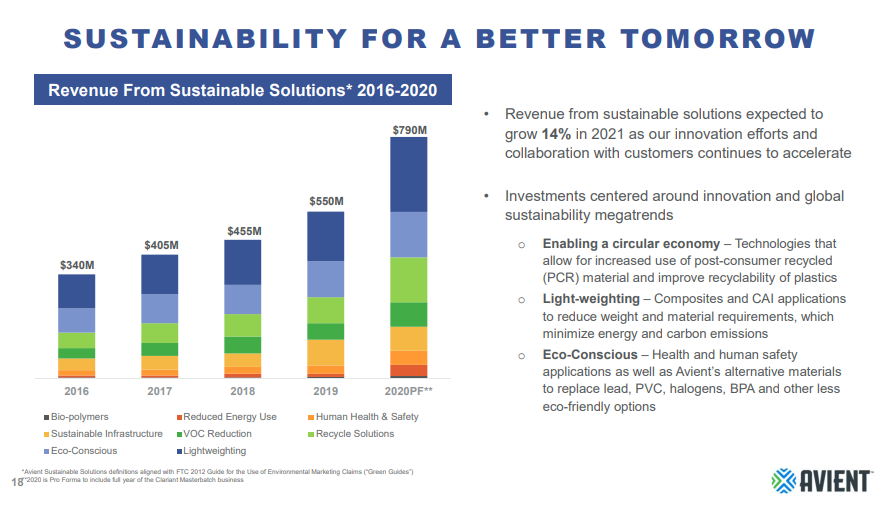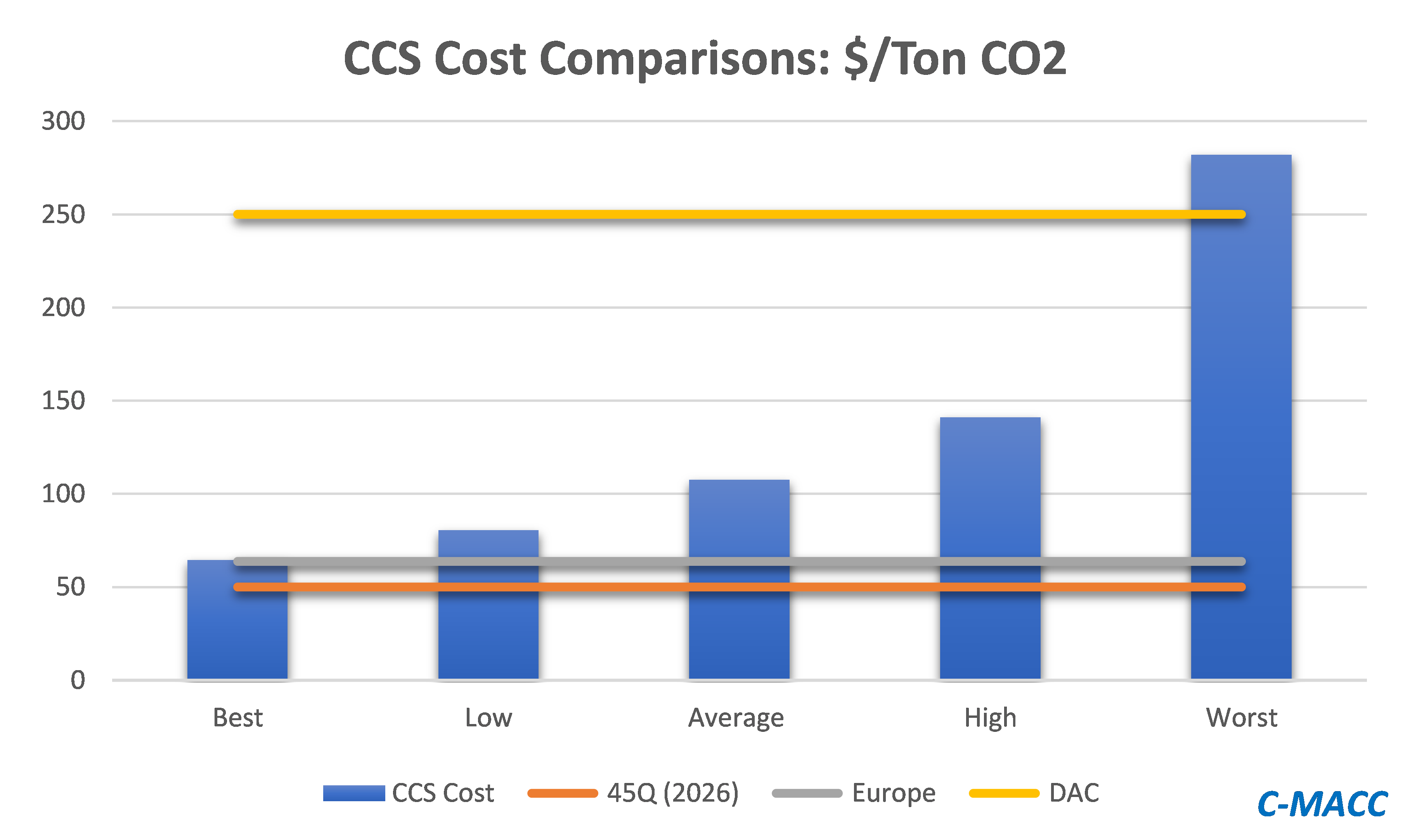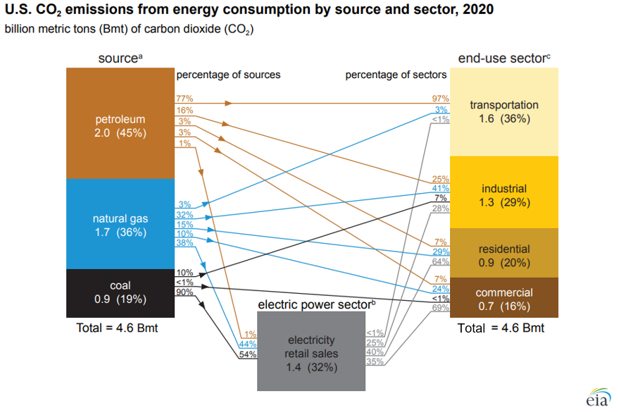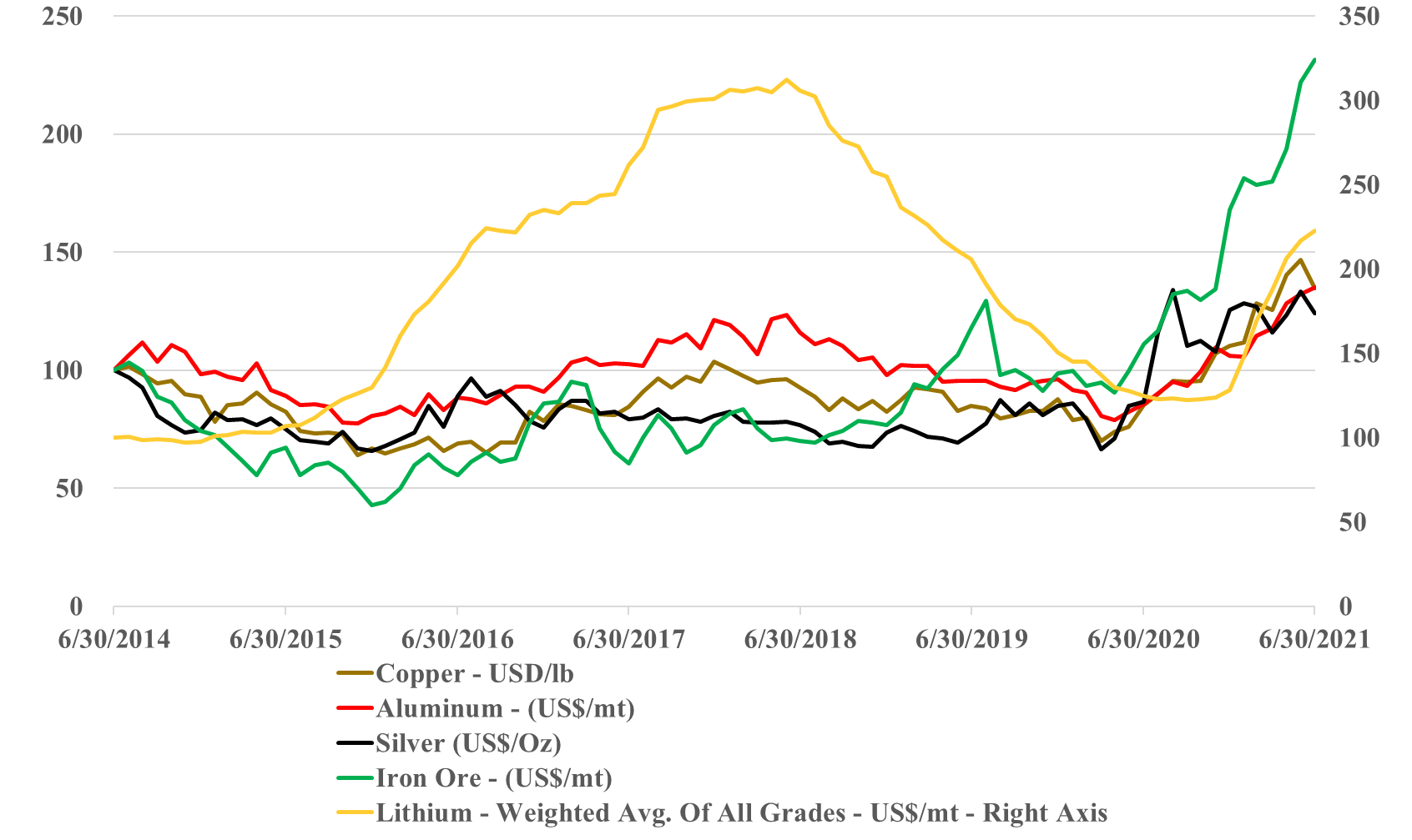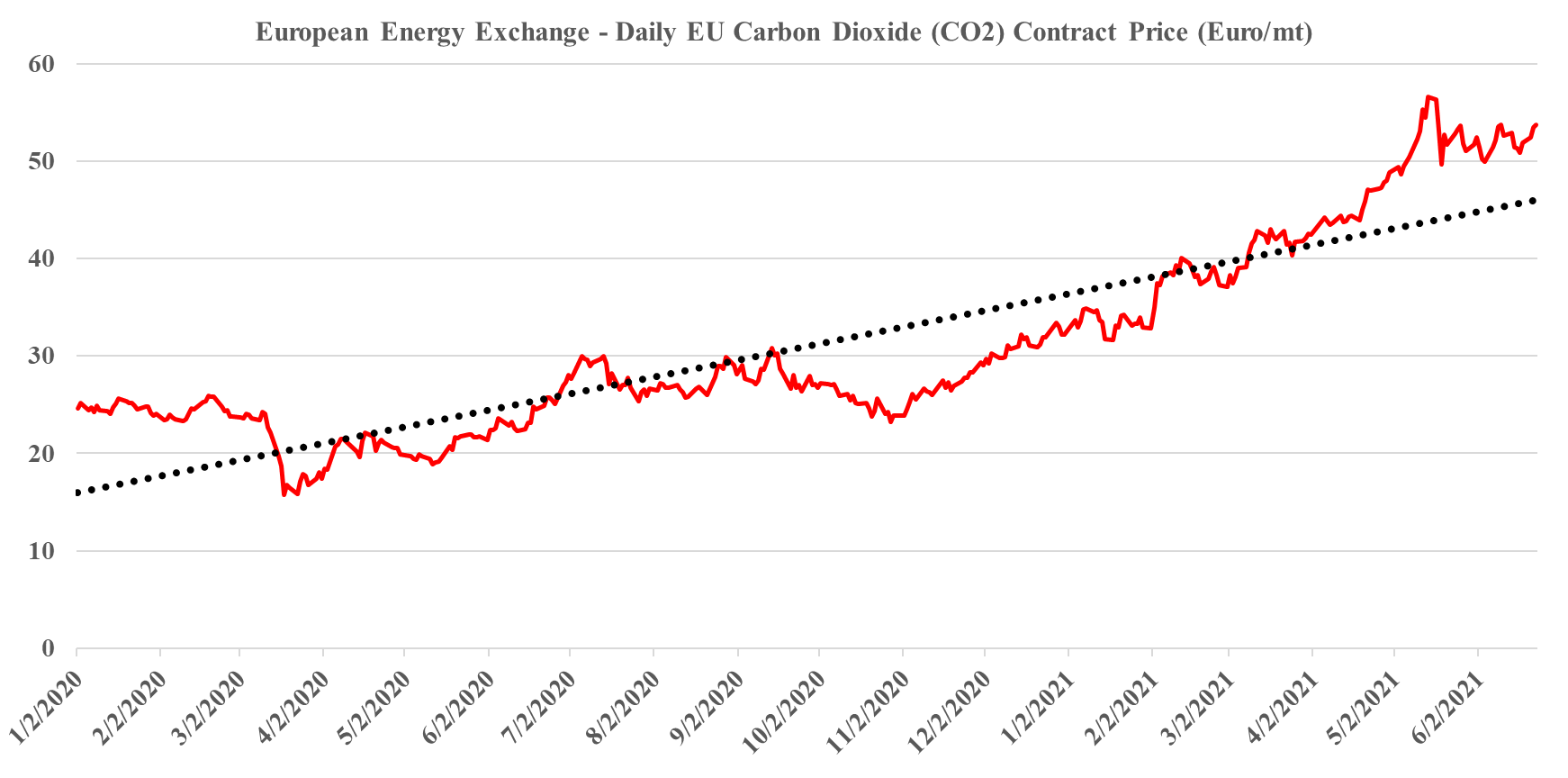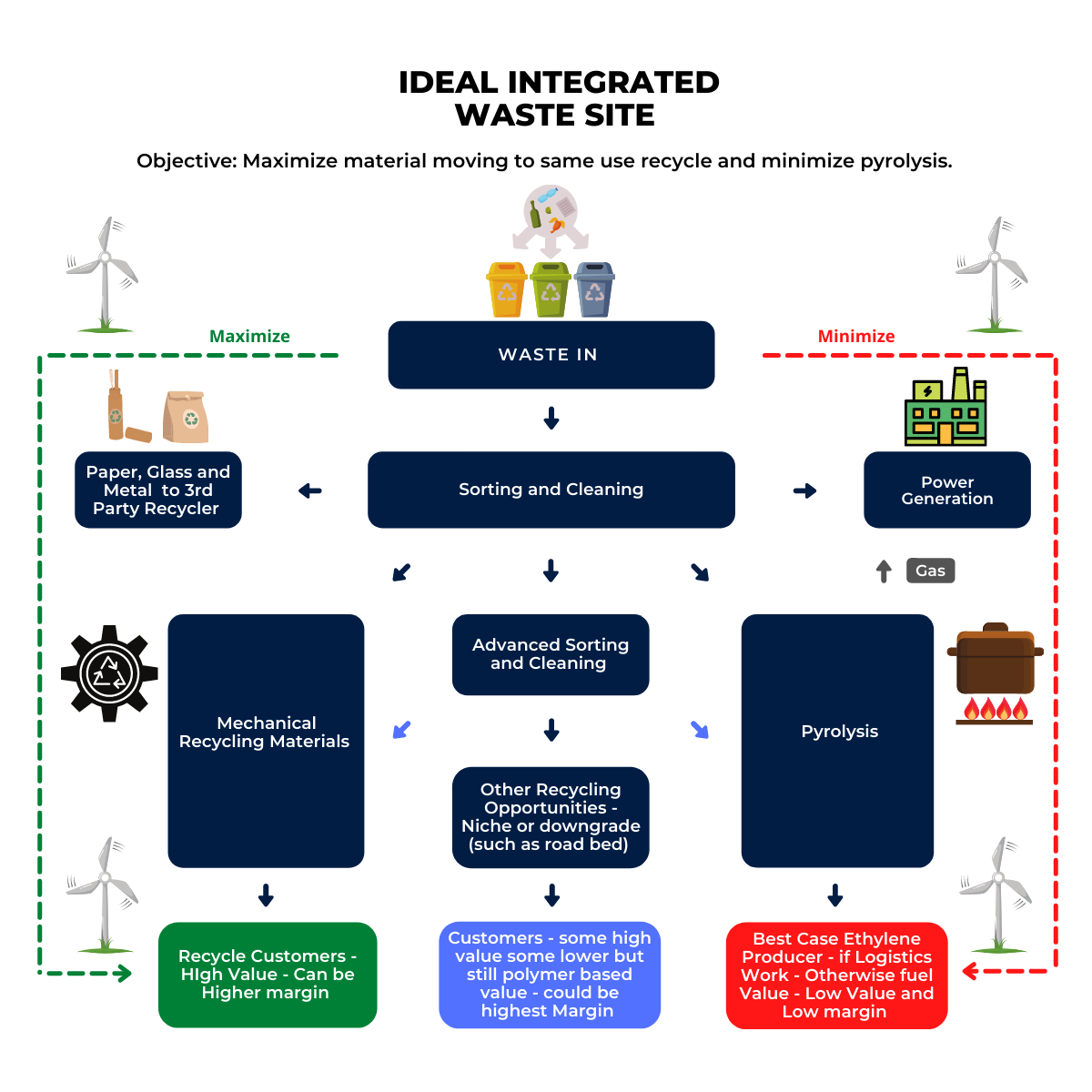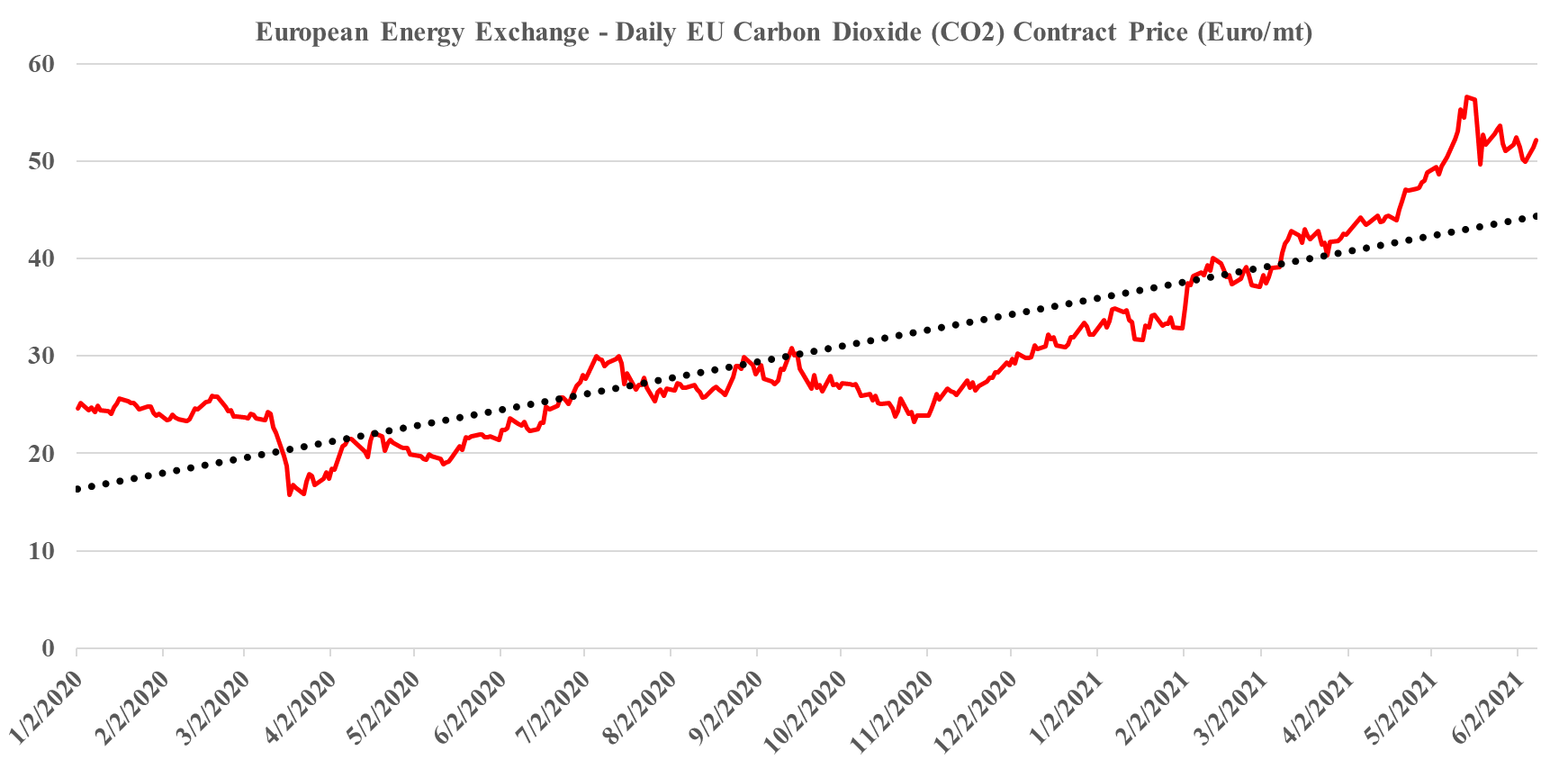The Avient sustainability claims in the Exhibit below are in many cases in buckets where there is likely a degree of subjectivity around the assumptions and the company may be stretching the good news a bit. For example, on “lightweight” it would be interesting to know how much of their other business was cannibalized by customers choosing lightweighting options and also how much of the move was inevitable and whether the solution could have been provided by others – i.e. was it normal “course of business” competition? This is a good example of where a company is claiming something that should be questioned – it may be accurate but it may also be an overly rosy interpretation of data that can lead to different conclusions.
The Challenges Of Subjective Analysis
Jul 30, 2021 1:59:00 PM / by Graham Copley posted in ESG, Sustainability, Avient
Carbon Offsets: Direct Air Capture Is Not The Only Option
Jul 28, 2021 12:55:50 PM / by Graham Copley posted in ESG, Carbon Capture, Climate Change, Sustainability, CCS, CO2, Emissions, carbon abatement, carbon values, carbon offsets, direct air capture, methane emission, DAC
There has been a lot of press over the last couple of months around carbon offsets – not least because of Mark Carney’s efforts to legitimize the idea. Mr. Carney’s focus is to create a robust trading platform for the buying and selling of legitimate offsets so that a carbon market can operate efficiently. He believes that without accurate and realistic carbon values, and the ability to buy and sell them, the capital markets around emission reduction will be inefficient and that less money will be attracted into the area. On this, he is probably correct, but in our view, the carbon offset markets have a long way to go.
Economics Have Driven US Emission Reductions More Than Policy
Jul 27, 2021 2:01:49 PM / by Graham Copley posted in ESG, Climate Change, Sustainability, Coal, CO2, Renewable Power, Energy, Emissions, natural gas, EV, clean power investments, power sector
We are increasingly concerned that the US will remain a laggard concerning climate change initiatives given the major challenges of moving to the next steps and the bifurcated congressional views. The emissions reductions that the US has seen over the last 10 years have been more happenstance than planning, with the abundance of natural gas following the shale boom of the last decade creating economic reasons to replace coal-fired power with natural gas rather than environmental reasons. Lower costs for wind and solar power and focused industrial demand for that clean power have been the bigger driver of clean power investments. In the chart below, the decline in emission from the power sector is evident and it should continue. The diagram below shows sources and uses for US emissions in 2020, but the accompanying write-up talks about the step down in emissions overall in 2020. Except for the continuing electric power transition, most of the other 2020 declines are COVID-related and are expected to rebound in the near term, especially transport. The market share gains of EVs are not significant enough yet to make a difference. See more in today's daily report.
Some Recycling Ambitions Expect Too Much Of The Consumer
Jul 23, 2021 12:43:02 PM / by Graham Copley posted in ESG, Recycling, Sustainability, Plastic Waste, Mechanical Recycling, chemical recycling, reusable plastics
The analysis behind the projections in Exhibit 6 in today's daily report, likely makes more assumptions than just the level of reusable plastics. To get the waste reduction projected, there will still need to be a step up in collection, sorting and recycling and it will all need to work to get the results desired. We are still concerned that these “high recycle” plans ask too much of an unwilling public, a slow to move average packager, and underfunded municipalities.
Lithium: A Commodity With Funding - Unlikely To End Well
Jul 2, 2021 12:10:22 PM / by Graham Copley posted in ESG, Sustainability, ESG Investing, copper, silver, batteries, energy transition, mining, Lithium, GM, auto market
One of our concerns with the Lithium hype has been what we perceive to be very low barriers to entry – coupled with significant momentum from lithium ultimate end-users to encourage more production. If we look at the linked GM announcement, the company is making exactly the right strategic move. Providing some funding, but more importantly, high-level credibility for a new US-based project that could dwarf other US initiatives. While GM may have contracted all of the lithium volumes from this project, it is unlikely. GM’s interest, which should be aligned with all the other automakers is to ensure an ample to surplus availability of lithium long-term to keep pricing low. Investing a few million to give legitimacy to a new large project may have huge potential longer-term benefits if the capacity helps maintain a longer-term surplus market. While there may be some special sauce in the technology required to make the lithium grades for higher-end and higher density batteries, the bulk of the auto market is likely to trade range for cost in its battery decisions – and at the less expensive end, the lithium barriers are very low, with other brine-based projects under consideration and likely to find funding.
Competition For Renewable Power Likely To Exceed Availability
Jun 23, 2021 1:56:35 PM / by Graham Copley posted in ESG, Sustainability, CCS, CO2, Renewable Power, Electric Vehicles, fossil fuel, carbon footprint, renewable energy, Green Industry, electric power, renewables, power demand, Amazon, carbon cost
There are several headlines today that speak to one of the most pressing issues that we have with the pace of energy transition – the competition for renewable power and the likely inability of the industry to keep up with the competing needs, let alone do so without significant power cost inflation.
Recycling Confusion Continues: Brand Owners Could Struggle To Meet Goals
Jun 22, 2021 1:48:14 PM / by Graham Copley posted in ESG, Recycling, Sustainability, Plastic Waste, Plastics, Mechanical Recycling, carbon footprint, polymer producers, chemical recycling
We want to focus on the following headline as it is both relevant and confusing:
Some ESG Related Spending Is Less Risky Than Others
Jun 15, 2021 1:53:08 PM / by Graham Copley posted in ESG, Hydrogen, Carbon Capture, Sustainability, Renewable Power, ESG Investing, Auto Industry, fossil fuel, carbon abatement, Power Industry, EBITDA, US Government
The WSJ article linked talking about rising ESG spending and the risks associated with it is in no way inconsistent with our view that lack of US Government guidelines is constraining ESG spending. The article focuses on the power and auto industries, which, while they face regulatory and incentive uncertainty, have a much clearer path than many others. The power industry is dealing with a customer which is increasingly asking for more renewable power, an investor base that is pushing for less reliance on fossil fuels, and a Government that is pushing for a 50% emissions reduction from the sector. The auto suppliers have clear directives from some US states and some countries about the phasing out of fossil fuel-based vehicle sales, and in some geographies, they have incentive systems that they can tap into. For both industries, there is a significant risk, in that the billions of dollars that they are investing in new plants and new equipment do not come with any guarantees that those investments will pay off well or quickly, but at least the direction of travel is unlikely to change. In other words, there will be demand for their products and investors will likely be happy with the progress – while they might not get the EBITDA they would like, they may get a better multiple of that EBITDA.
Government Indecision Is Driving A Lack Of Climate Related Investment
Jun 9, 2021 1:28:47 PM / by Graham Copley posted in ESG, Hydrogen, Carbon Capture, Sustainability, Chemical Industry, Net-Zero, carbon credit, government guidance, plastics waste
Whether it is carbon capture, hydrogen investments (blue versus green or just in general), plastics waste, or any other aspect of the drive to greater sustainability and net-zero emissions, everyone is looking for a “playbook”; a set of rules that allow for more effective and less risky decision making. The headline linked that talks about the chemical industry needing governments to take more action is another such example. Companies facing increasing shareholder pressure to make change are not only looking for government guidance and possible incentives but they are also not wanting to second guess what any regulatory move might be. No one wants to make a significant capital decision if there is a risk that a government policy shift will make it the wrong move. The European carbon credit price – shown below is at least a framework that many European companies can use to value possible decisions – even if some European companies and countries are moving at different paces than others in terms of emission and hydrogen mandates. The price is tangible and its mechanism for calculation should also allow companies to forecast how it might change. Europe is also working on a plastic waste tax – this would give a stronger economic framework to push improved recycling.
Source: Bloomberg, C-MACC Analysis, June 2021
It Is Hard To Find Talent When All The Issues Are New
Jun 8, 2021 12:21:03 PM / by Graham Copley posted in Recycling, Climate Change, Sustainability, Net-Zero, fuel alternatives, carbon abatement, renewable polymers, investment managers, investor relations
The article linked that discusses the “Talent War” for ESG spreads well beyond the investment community. Corporations are having to rethink strategy around new variables, and consequently, the experienced talent pool is limited and in some areas such as carbon abatement, recycling versus renewable polymers, and alternate sources of fuel, there is not much history to have created many “experts”.


